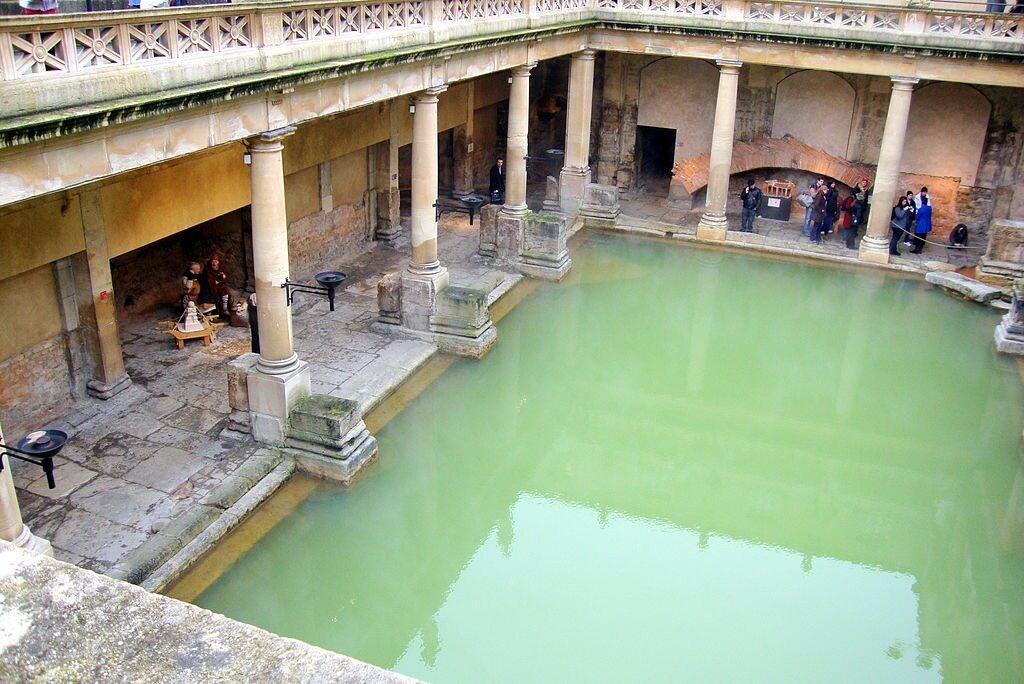People love swimming pools. There’s nothing like splashing or floating around in cool water on a sunny summer day. Did you know that humans have been enjoying swimming pools since 2500 BC? Swimming pools have a long and proud history. Knowing how pools have changed and impacted society over time, might improve your own pool experience, and give you something unique to discuss during summer pool parties.
Great Baths
 The first swimming pools were actually built for bathing. About 5000 years ago, the first swimming pool, or great water tank as it was known then, was built in the city of Mohenjodaro, in what is now Pakistan. It was approximately 39 ft. x 23 ft. and 8 ft. deep, with staircases leading into the tank. Columns surrounding the tank may have been used to hold wooden screens, possibly used to preserve bathers’ modesty. These and other large bathing tanks or pools, such as the Roman baths, were often used for stress relief or religious rituals. As the name suggests, they were also a great source of cleanliness in eras when sanitation was still developing in many civilizations.
The first swimming pools were actually built for bathing. About 5000 years ago, the first swimming pool, or great water tank as it was known then, was built in the city of Mohenjodaro, in what is now Pakistan. It was approximately 39 ft. x 23 ft. and 8 ft. deep, with staircases leading into the tank. Columns surrounding the tank may have been used to hold wooden screens, possibly used to preserve bathers’ modesty. These and other large bathing tanks or pools, such as the Roman baths, were often used for stress relief or religious rituals. As the name suggests, they were also a great source of cleanliness in eras when sanitation was still developing in many civilizations.
Recreational Pools
Along with bathing, pools were used for recreation in ancient civilizations like Greece and Rome. They were symbols of luxury for the wealthy, who often had pools as part of their homes. Additionally, pools were symbols of progress, development, and civilization in large cities, where citizens flocked to them daily. Some pool owners took their pools to the next level of recreation as well. Many ancient Greeks created “palaestras,” where people could exercise in the water and box or play ball games in a nearby pool area.
Training Grounds
As far back as 400 BC, young children learned to swim in pools as part of their basic education. Some of these children, especially boys training to be soldiers, later used pools for fitness, which helped them train for war. Even for children and teens not pursuing military training, the pool was a great fitness option and continues as one today.
Swimming with the Fishes
The word “pool” comes from the Greek word “piscine,” meaning fish. Indeed, some ancient pools weren’t used for swimming, but to keep exotic fish and other marine life. These pools were popular with Greek and Roman emperors, as well as the aristocracy. They were often part of luxurious garden areas or decorated with extras such as beautiful waterfalls.
